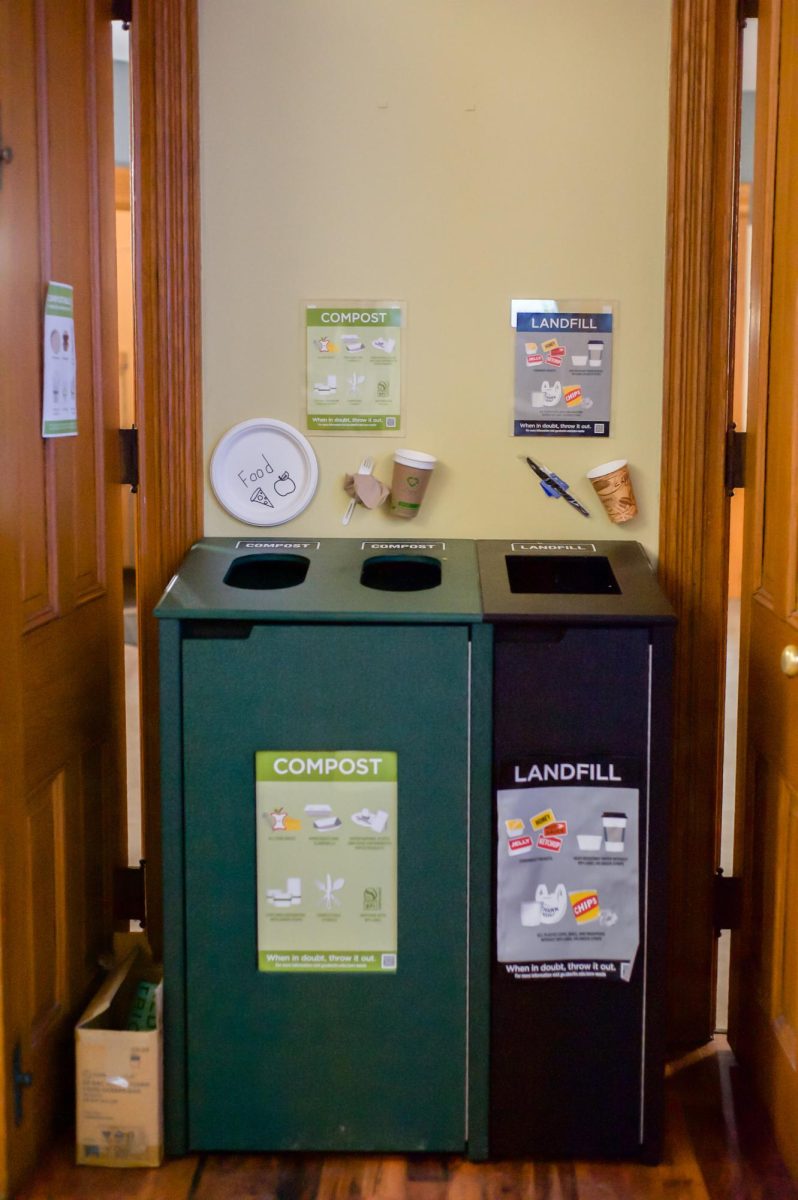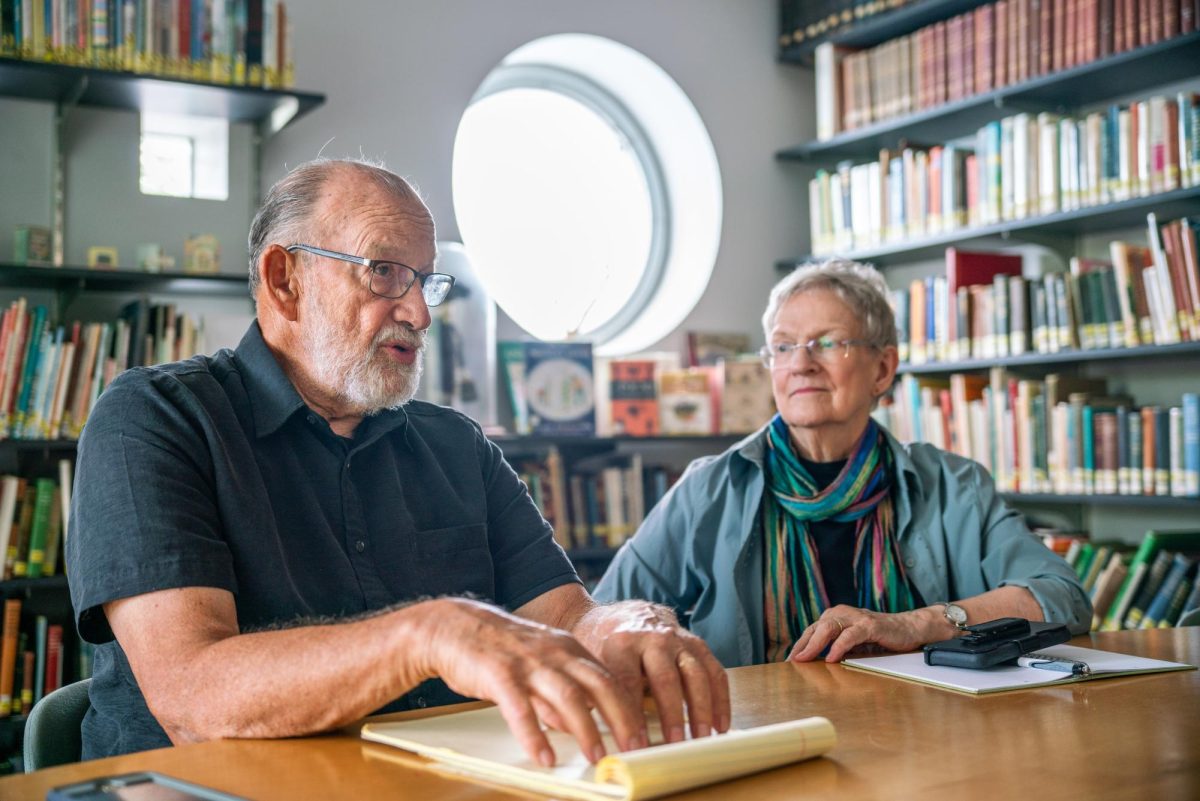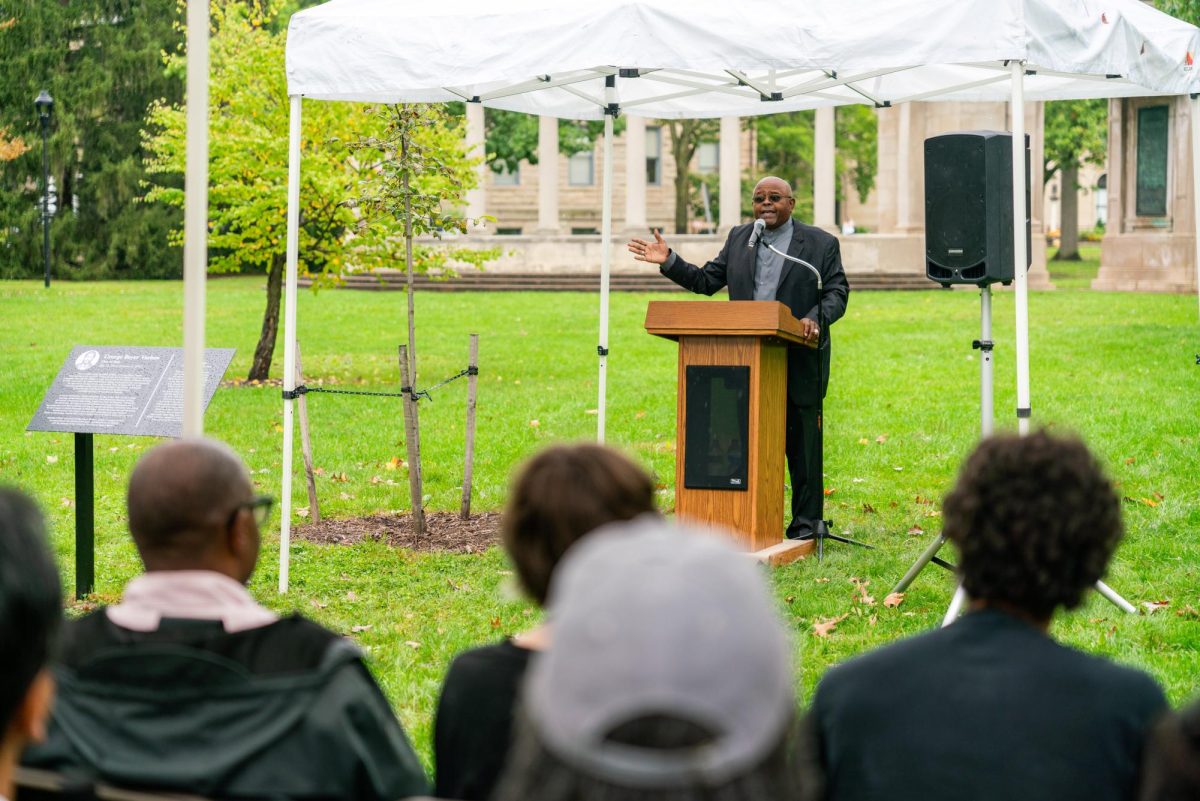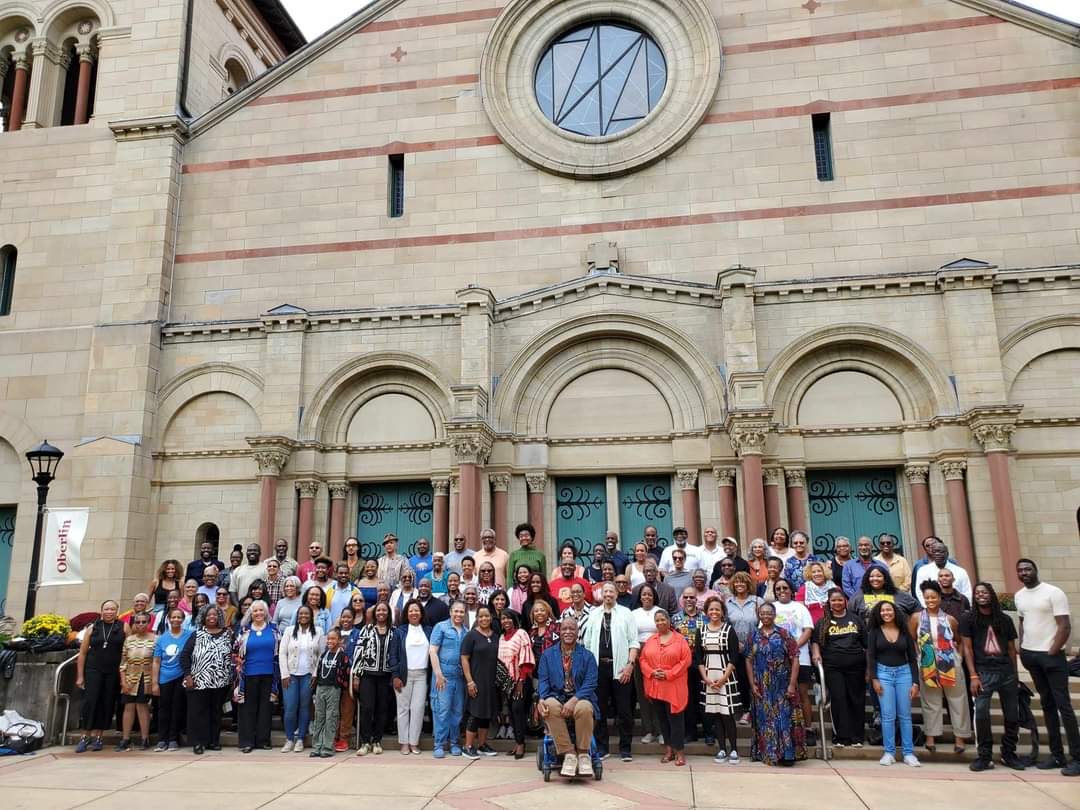At the start of the spring 2024 semester, the Office of Sustainability and AVI Foodsystems implemented composting options at Heritage. It is the first time that AVI’s composting program has been implemented at a dining facility.
Currently, volunteers working for the Office of Sustainability have been posted at Heritage to ensure that students are properly composting food waste. Although these volunteers have been very helpful, they will ideally be phased out in the next few weeks as students become familiar with the new composting program, AVI Director Sarirose Hyldahl said.
The addition of composting to Heritage is part of a larger composting project by the Office of Sustainability that started last year, according to Sustainability Manager Heather Adelman. The program began by adding composting options to first-year residence halls and has since spread to include nine buildings. Food waste disposed of in compost bins is sent to the Barnes Compost Facility in Huron where it is processed.
The composting project is part of the Office of Sustainability’s goal to be carbon-neutral by 2025. In addition to reducing reliance on traditional forms of energy, the College hopes to curb greenhouse gas emissions by disposing waste in environmentally friendly ways. Studies have shown that food waste processed in composting centers emits significantly less methane than food waste deposited in landfills.
Although AVI has worked with the Oberlin Student Cooperative Association to reduce food waste through the Food Rescue Program, the program at Heritage is the first time composting has been implemented in a dining hall. Adelman said Heritage was chosen because it serves three meals a day and uses disposable utensils, cups, and plates that have already been replaced with compostable alternatives.
Composting refers to the combination of organic materials that can be added to soil to improve its plant-growing properties. Material that can be composted at Heritage includes food waste and other paper products like napkins and tissues, including those that have been contaminated by food.
Adelman stressed the importance of making sure to dispose only the correct items in the composting bins.
“When in doubt, throw it out,” Adelman wrote in an email to the Review.
Hyldahl said that the program would continue to be implemented throughout additional dining halls over the next year. She said AVI particularly hopes to implement the program at Lord-Saunders and Clarity Dining Halls within the next year. She said the program would not be implemented at Stevenson Dining Hall until later.
“Stevenson is going to be a little bit in the future as we are looking at some larger changes for dining on campus over the next few years,” Hyldahl wrote in an email to the Review.
Hyldahl said that AVI envisioned the post-consumer composting project spreading. While AVI is concentrating on bringing the composting program to other Oberlin dining halls, Hyldahl said she would ideally like the program to be expanded to nearby colleges.
While Hyldahl stated that she was proud of the composting project, she reiterated that it would only be successful if students actively participate in post-consumption composting.
“It is essential to act as a responsible steward of the environment,” Hyldahl wrote.









